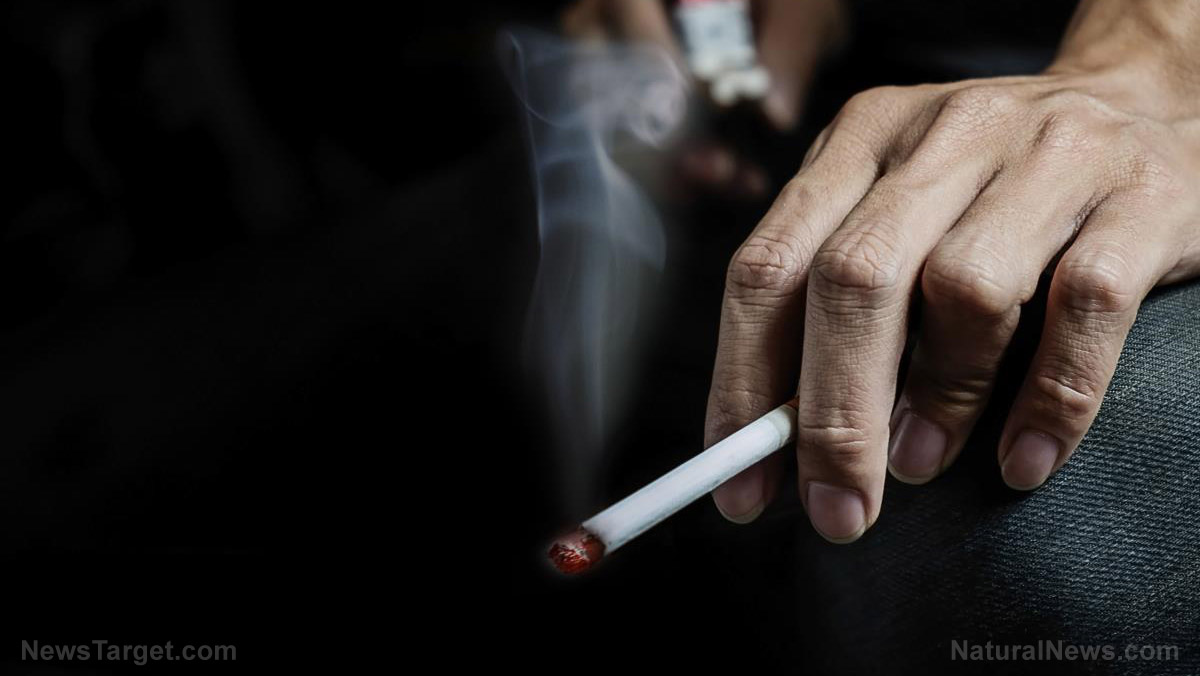World-renowned neurobiologist says nicotine extract could protect against coronavirus
04/25/2020 / By Ethan Huff

It appears as though there is a beneficial use for tobacco after all, or at least the nicotine it contains.
According to acclaimed neurobiologist Jean-Pierre Changeux, nicotine shows incredible promise in the fight against the Wuhan coronavirus (COVID-19) as both a preventive and curative remedy.
He and a team of specialists from Pitié-Salpêtrière hospital in France have been studying the effects of the Wuhan coronavirus (COVID-19) on smokers versus non-smokers, and they’ve come to an interesting, if not unexpected, conclusion: Smokers are less affected by the novel virus than non-smokers.
For whatever reason, smokers are less likely to succumb to the Wuhan coronavirus (COVID-19). In fact, very few smokers are contracting the virus at all, a finding that’s now been published by the Academy of Science.
Two specific population groups that are also showing minimal infection rates are prison inmates and patients at psychiatric hospitals, both of which just so happen to have a higher-than-average number of smokers.
The common denominator in all of this research is smoking, which oddly enough seems to provide some type of unknown protection against the Wuhan coronavirus (COVID-19), and potentially other viruses and microbes as well.
For their research, Changeux and the team from Pitié-Salpêtrière evaluated 350 hospitalized patients, along with 130 “lighter” patients who were admitted on an outpatient basis. All of these patients tested positive for the Wuhan coronavirus (COVID-19).
As it turns out, very few patients who are treated for the Wuhan coronavirus (COVID-19) at Pitié-Salpêtrière smoke – a mere five percent – while very few people who smoke are testing positive for the virus in the first place, and thus aren’t being admitted for treatment.
“Basically, we have 80 percent less smokers in Covid patients than in the general population of same sex and same age,” stated Zahir Amoura, a professor of internal medicine, to a French paper about the findings.
Listen below to The Health Ranger Report as Mike Adams, the Health Ranger, talks to Dr. Paul Cottrell about the validity of the coronavirus antibody test kits:
Nicotine stops coronavirus from entering and fixing itself inside cells
Based on what Amoura, Changeux, and others have uncovered about the nature of nicotine, it would seem as though this constituent of tobacco possesses a unique ability to stop the Wuhan coronavirus (COVID-19) from entering cells and making a home there.
Nicotine effectively stops the virus from propagating, acting as a type of brake that keeps disease from forming. As disturbing as this hypothesis might be, seeing as how tobacco and nicotine are largely vilified, it does have some merit and could explain why smokers are faring generally well amid this pandemic.
Clinical trials are soon to commence in order to test this theory, and to see if there might be better ways to deliver nicotine rather than smoking. These might include nicotine extracts or patches, the latter of which are already used to help smokers kick the habit.
Once the trial gets the green light from the French government, researchers plan to administer nicotine patches to three different groups at different dosages. Caregivers will be given them as a preventive measure; hospital patients will be given them to see if their symptoms improve; and severe resuscitation patients will be given them to see if their inflammatory conditions subside.
Another theory is that nicotine helps to prevent the immune system from over-reacting to the virus, a phenomenon known as a cytokine storm. Because cytokine storms have the potential to kill a person, nicotine could help to keep the immune system in check while regulating a more appropriate immune response to pathogenic invaders.
To keep up with the latest news about the Wuhan coronavirus (COVID-19), be sure to check out Pandemic.news.
Sources for this article include:
Submit a correction >>
Tagged Under:
alternative medicine, anti-viral, China, Chinese Virus, coronavirus, covid-19, disease, global emergency, Global Pandemic, Herbs, infection, natural medicine, nicotine, novel coronavirus, outbreak, pandemic, prevention, virus, Wuhan, Wuhan coronavirus
This article may contain statements that reflect the opinion of the author
RECENT NEWS & ARTICLES
COPYRIGHT © 2017 PHYTONUTRIENTS NEWS





















